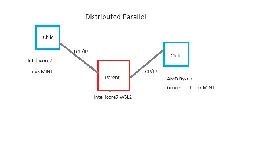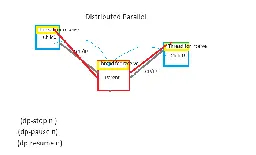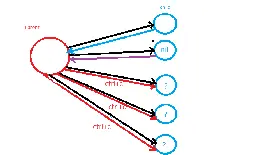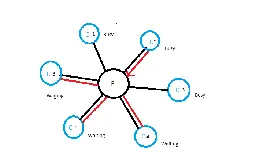Thank you. This is very helpful.
Unfortunately, I don't see any extra Noto fonts in Aurora's packages.json. But, at least, I can communicate via Github issues?
Do you recommend Aurora or Bazzite or something else?
Including all compressed Noto fonts, which require approximately 104MB of disk space, would be a worthwhile addition to the 2.8GB Fedora Silverblue image. This would provide out-of-the-box support for numerous writing systems worldwide. I hope that Fedora will consider including all Noto fonts in a future release.
However, I don't know where I should send my statement to them.
The question is more like where else would you put your backups?
No, it is not.
Distributed Parallel Lisp Computing Experiment
Distributed Parallel Lisp Computing Experiment

I installed Sparky Linux 7 on my backup laptop computer because I failed to install Debian.
Continuing the Challenge
Maybe Sparky Linux ...
Normally, I use Debian. However, Debian 12 installer didn't work on my Acer Extensa 💻. So I installed Sparky Linux, and it works.
People claiming Linux isn’t a viable alternative cause you can’t run it without using the command line.
Even in 2024, many people begin using GNU/Linux with Arch Linux or Ubuntu with apt-get, then later they complain that Linux is not for average users. Maybe the community needs more GUI only tutorials.

YouTube Video
Click to view this content.
The video offers a practical example of using Ubuntu for web development, reminiscent of the Rails screencasts popular two decades ago. Back then, many software developers I met still believed the iBook G4 was primarily for desktop publishing, not software development.
Like Thinkpad, the main brand is Lenovo. Thinkbook keyboard is like Acer and other brands.
I'm using Lenovo ThinkBook, which is cheaper than Thinkpad, and the keyboard layout is different. It supports upto 40GB of RAM.
For over twenty years, the Mac was the default at 37signals. For designers, programmers, support, and everyone else. That mono culture had some clear advantages, like being able to run Kandji and macOS-specific setup scripts. But it certainly also had its disadvantages, like dealing with Apple's awf...

dhh is the creator of Ruby on Rails. He has extensively used Mac for decades. A few months ago, as far as I remember, he mentioned something like switching to Windows and WSL.
Meta has released the latest entry in its Llama series of open generative AI models: Llama 3. Or, more accurately, the company has debuted two models in its new Llama 3 family, with the rest to come at an unspecified future date. Meta describes the new models -- Llama 3 8B, which contains 8 billio...

Linq
LINQ is remarkable.
Stored procedure and Datalog are not what I'm looking for. However, I should consider them seriously, since they may be more practical.
b but has nice
Thank you. This is exactly what I'm looking for.
link
Yes, I've used this.
properly parametrized and escaped and all that
I'm not sure if what I use is proper enough in your sense. So, can you elaborate more?
Is there a programming language specifically designed for interacting with SQL databases that avoids the need for Object-Relational Mappers (ORMs) to solve impedance mismatch from the start?
If such a language exists, would it be a viable alternative to PHP or Go for a web backend project?
RK3588 is used in many Linux devices, but I'm not sure if Rockchip is in the BDS list. I don't know which factory was RK3588 from.
I heard that Linux gets new patches for Loongson, but I didn't try it yet.
#[allow(unused_assignments)]
Thank you. This works!
It doesn't work, at least, on rustc 1.75.
Clippy didn't tell anything about the macro.
warning: dereferencing a tuple pattern where every element takes a reference
--> src/lib.rs:13:9
|
13 | &Some(ref cons_rc) => {
| ^^^^^^^^^^^^^^^^^^
|
= help: for further information visit https://rust-lang.github.io/rust-clippy/master/index.html#needless_borrowed_reference
= note: `#[warn(clippy::needless_borrowed_reference)]` on by default
help: try removing the `&` and `ref` parts
|
13 - &Some(ref cons_rc) => {
13 + Some(cons_rc) => {
|
To put #[allow(this_linting_rule)] like this:
[ $x:expr, $( $y:expr ),* ] => {
#[allow(unused_assignments)]
{
I got error[E0658]: attributes on expressions are experimental.
To put it like this:
#[macro_export]
#[allow(unused_assignments)]
macro_rules! list {
() => {
None
It doesn't work.
Removing last will break my library.
```Rust #[macro_export] macro_rules! list { () => { None }; [ $x:expr, $( $y:expr ),* ] => { { let mut first = cons($x, &None); let mut last = &mut first; $( let yet_another = cons($y, &None); if let Some(ref mut last_inner) = last { let last_mut = Rc::get_mut(last_inner).unwrap(); last_mut.cdr = yet_another; last = &mut last_mut.cdr; } )* first } } }
```
This macro works as I expected because it can pass these tests.
```Rust #[test] fn dolist() { let mut v = vec![]; dolist!((i &cons(10, &list![20, 30, 40])) { v.push(i.car); }); assert_eq!(v, vec![10, 20, 30, 40]); }
#[test] fn turn_list_to_vec() { assert_eq!(list_to_vec(&list![1, 2, 3]), vec![1, 2, 3]); }
#[test] fn count_elements() { assert_eq!(list_len(&list![10, 20, 30]), 3); }
```
However I got the warning "value assigned to last is never read."
How can I avoid this warning?
P.S. Full code





